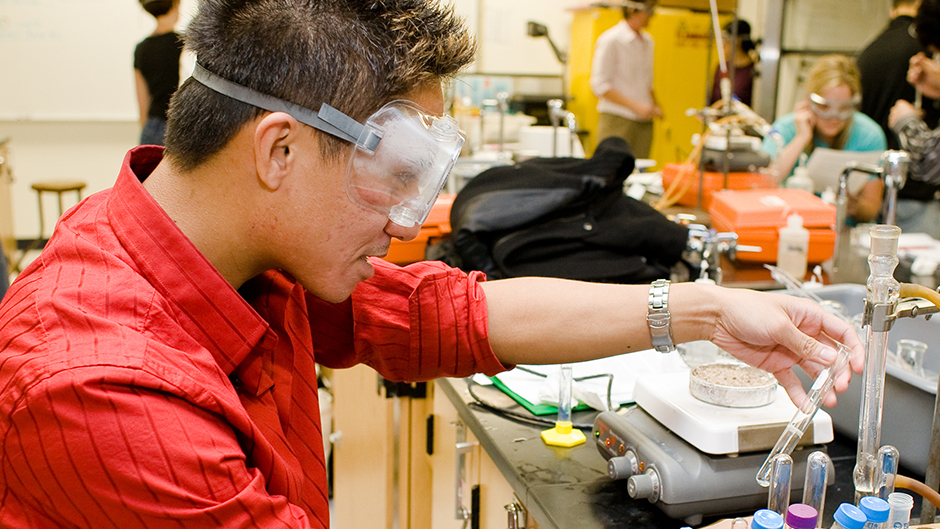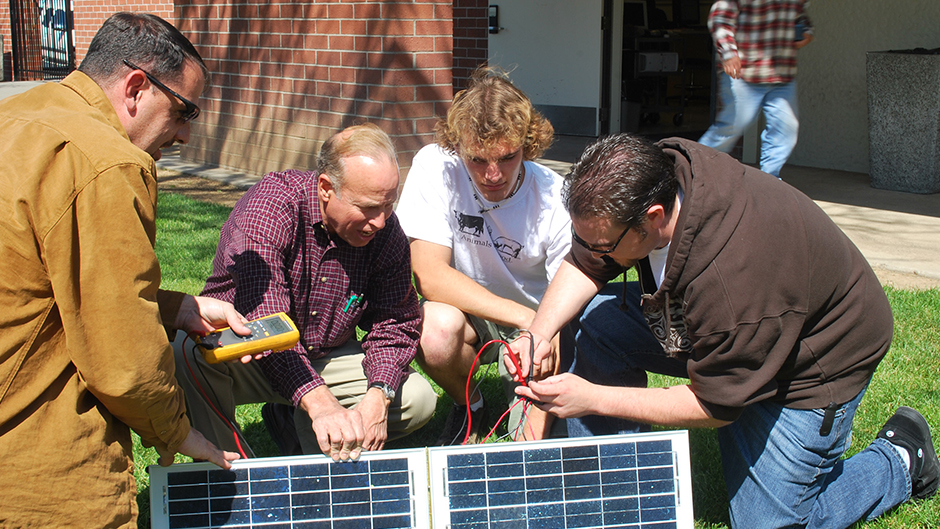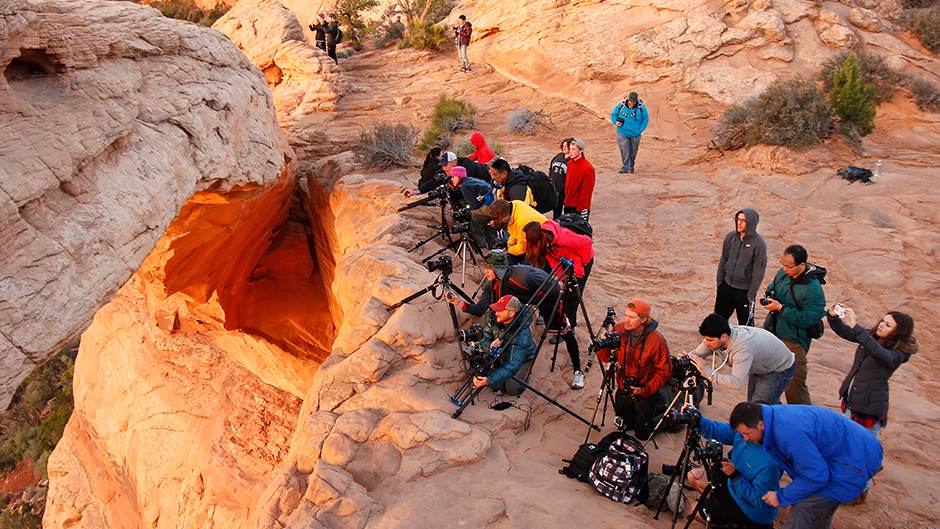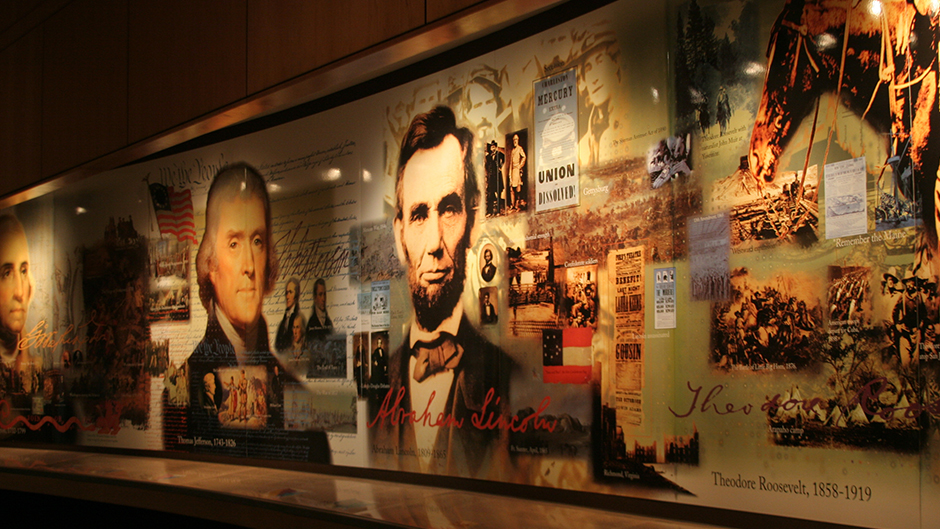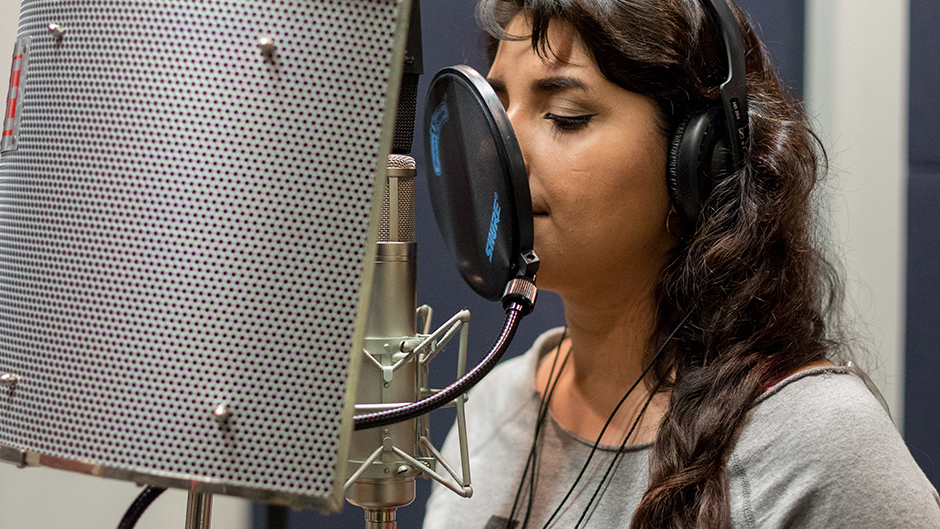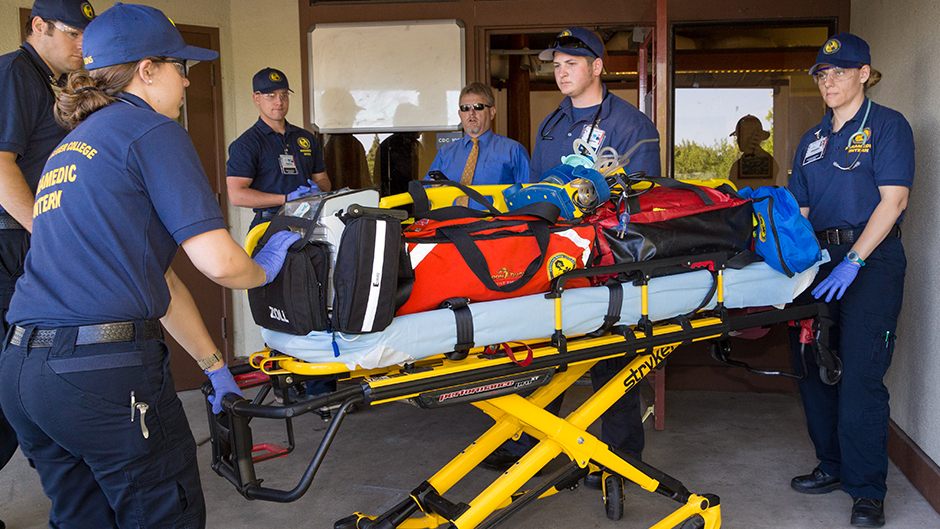HomeBases
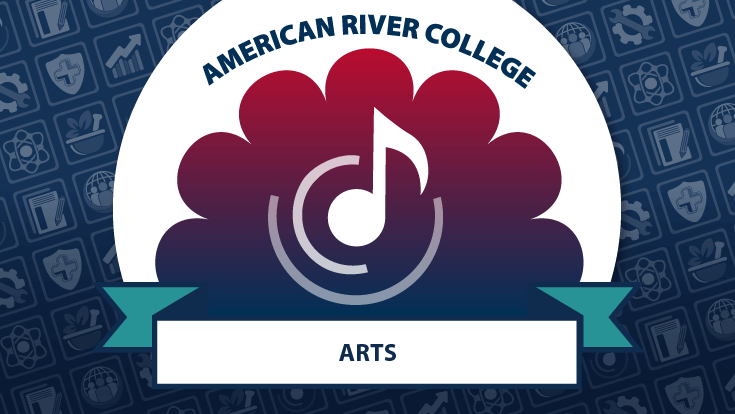
Arts HomeBase
Cultivate your creativity! Explore the arts and find a career aligned with your innate creative fire.
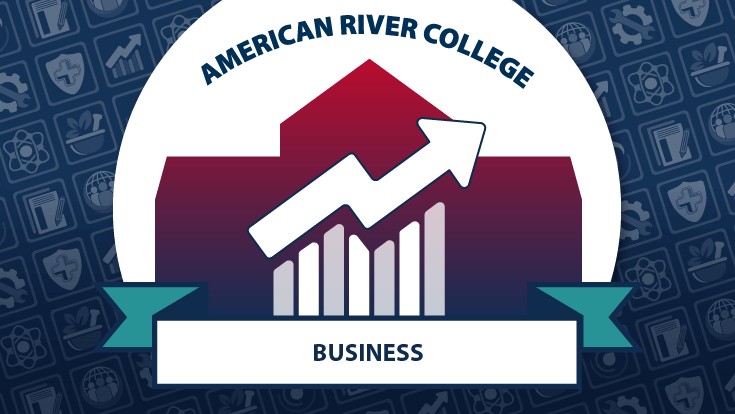
Business HomeBase
Are you a go-getter? Do you aspire to be your own boss, or lead others? Are you innovative and seeking to influence change? Explore the Business HomeBase!
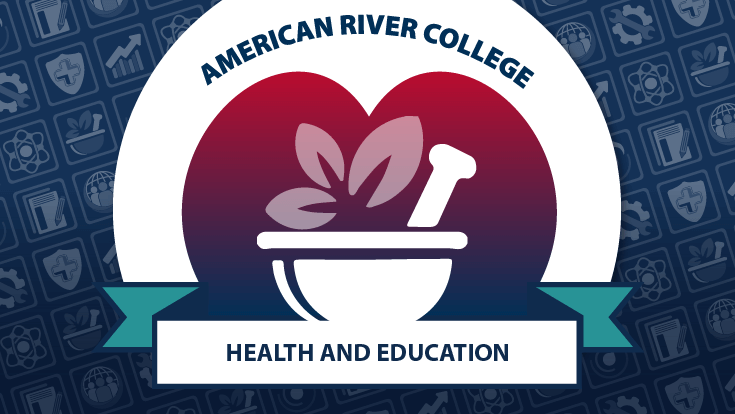
Health and Education HomeBase
Interested in what fuels our body and how it works? Every stage of life brings different needs. Explore the variety of programs and career options in the health and well being fields.
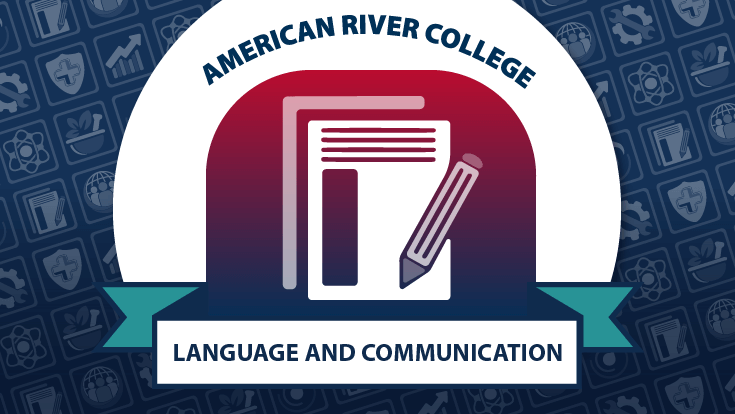
Language & Communication HomeBase
Calling all writers, aspiring journalists, and those interested in languages! Explore careers in the field of language and communication.
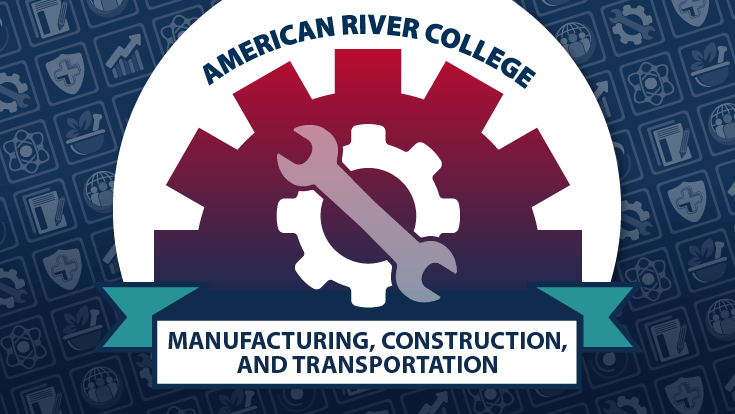
Manufacturing, Construction, and Transportation HomeBase
Do you like to use strategic planning and problem solving to bring a project to life? The MCT HomeBase will provide you with the training and hands-on skills for in-demand careers across the manufacturing and construction fields.
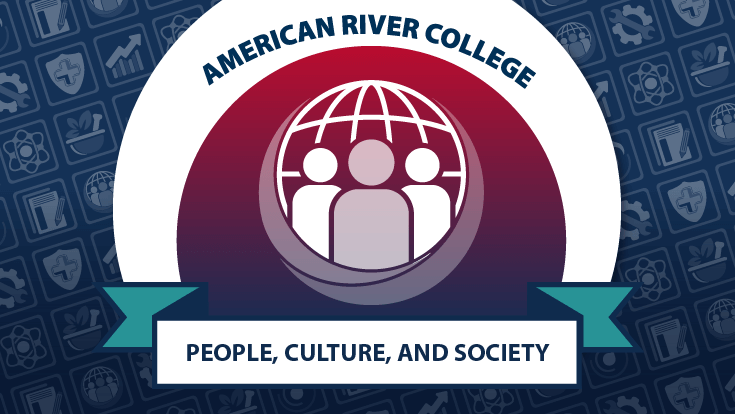
People, Culture & Society HomeBase
Feel the human connection, experience history and culture, and explore and embrace our differences in the People Culture and Society HomeBase.
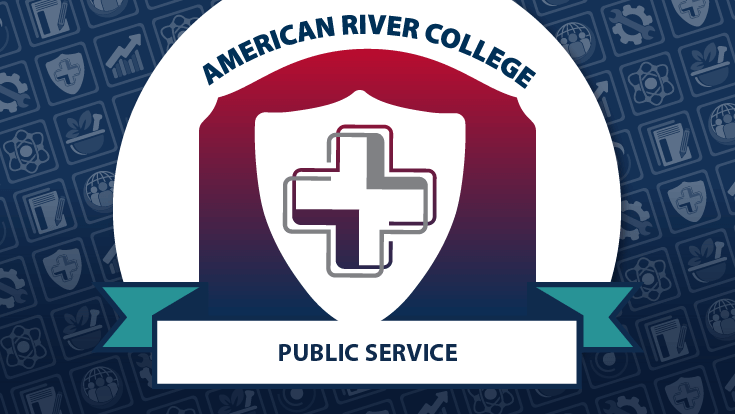
Public Service HomeBase
Are you passionate about creating safe and caring communities? A career in public service can present opportunities to build relationships, problem solve, and provide critical response to the community.
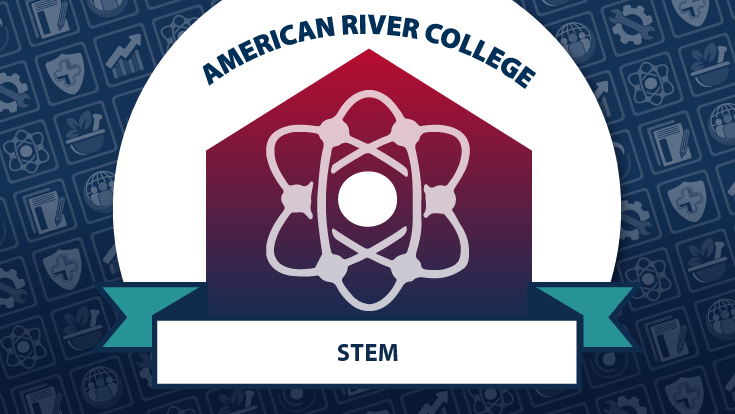
STEM HomeBase
With STEM, you can! Learn, create, and explore the career and degree options in science, technology, engineering and math.
Guaranteed Admission. Promise of Free Tuition.
It's easier than ever to apply to American River College.
When you apply now, you guarantee your admission to American River College. After that, fill out the Free Application for Federal Student Aid (FAFSA) or California Dream Act Application (CADAA) to save money on tuition and other fees. It's as simple as that.
Find a Program
Explore a Program

Accounting
Prepare for careers in various accounting professions and develop a foundation in accounting and business.
Accounting

Administration of Justice
Learn the prevention, discovery, control, and treatment of crimes, and prepare for the administration of justice field.
Administration of Justice
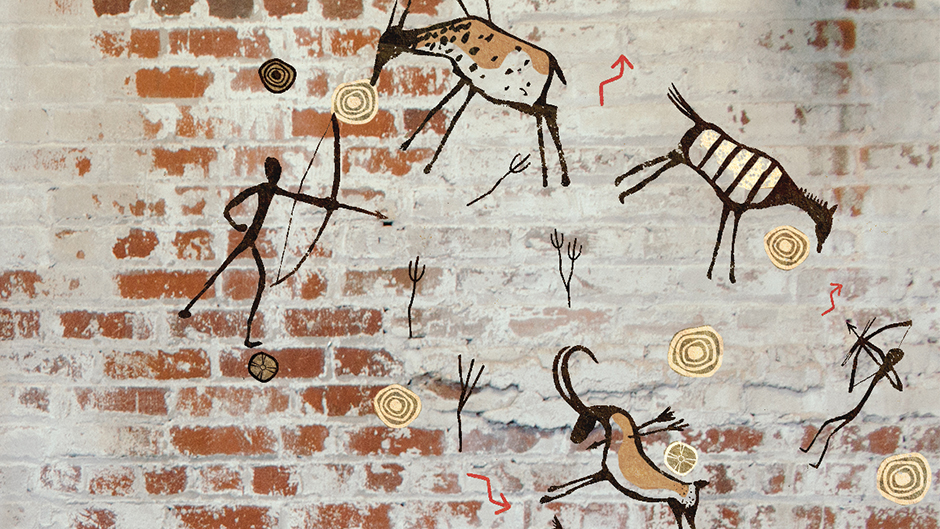
Anthropology
Study humankind around the world and throughout time to understand our evolutionary origins and our diverse cultures.
Anthropology
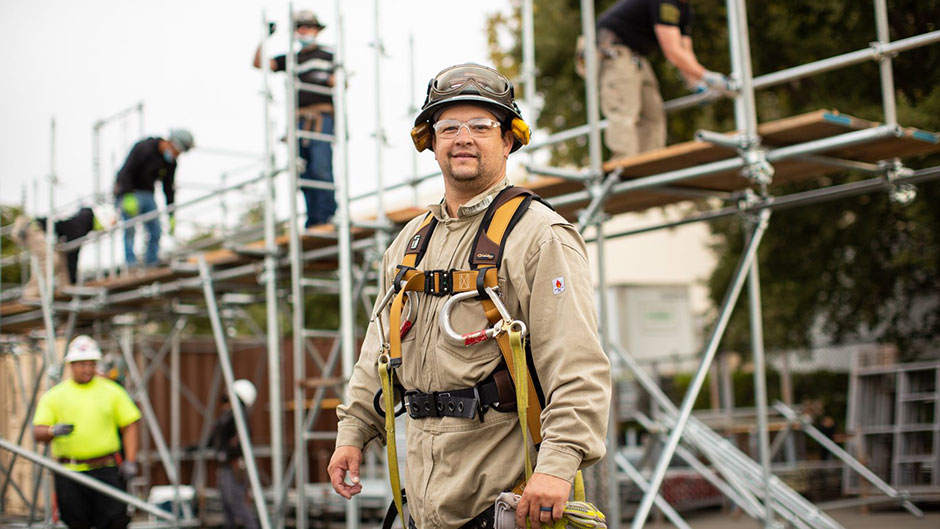
Apprenticeship
Gain occupational training that combines paid employment, on-the-job training, and job-related college instruction.
Apprenticeship
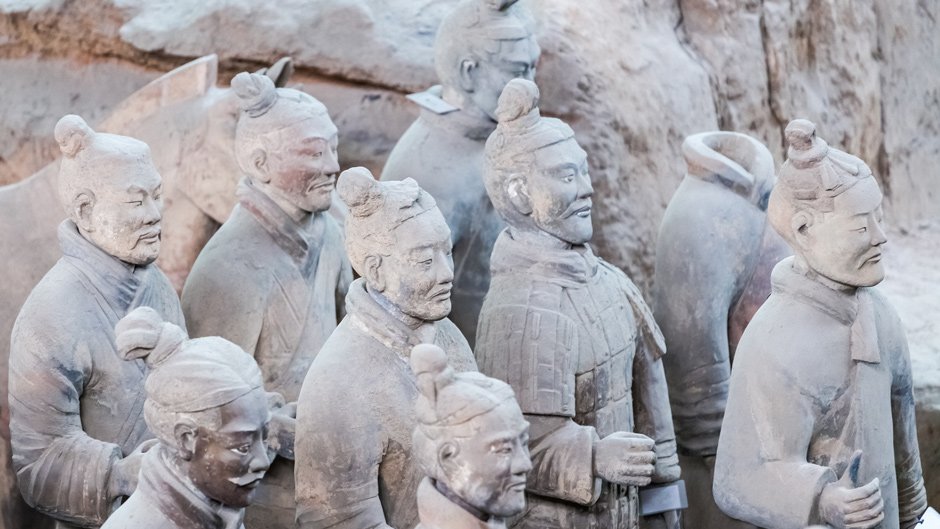
Art History
Our Art History degree is designed to give students the foundation in art history necessary for transfer to a four-year college or...
Art History

Art New Media
A digital art and design education honoring traditional art foundations. Learn the latest tools and techniques in multiple areas.
Art New Media

ASL-English Interpreting
Prepare for entry-level positions with integrated coursework in American Sign Language (ASL) and ASL-English interpretation.
ASL-English Interpreting

Automotive Collision Technology
The Automotive Tech Programs combine classroom and hands-on shop experience to prepare for careers in the transportation industry.
Automotive Collision Technology
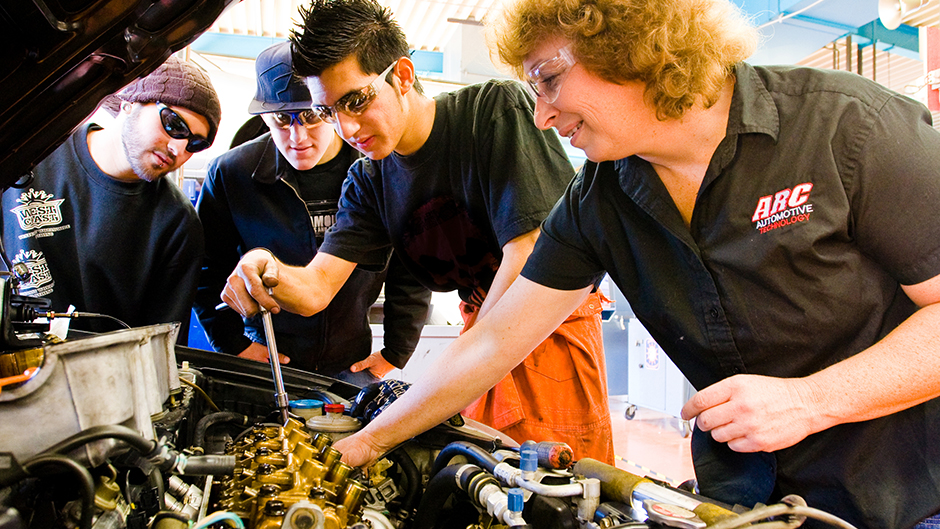
Automotive Technology
Receive combined classroom and hands-on shop experiences to prepare for automotive service careers and repair all types of cars.
Automotive Technology
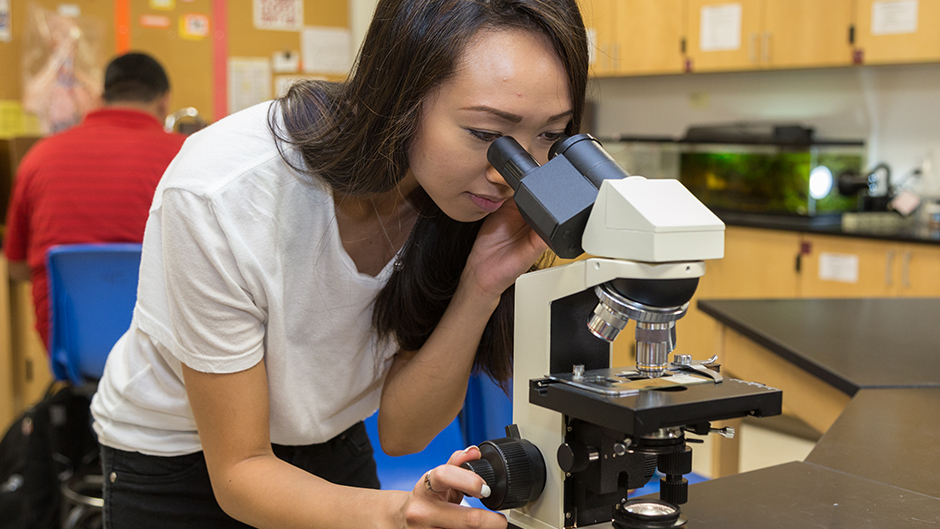
Biology and Biotechnology
Understand the living world. Meet the challenges of the future, improve the quality of human life, and preserve biodiversity.
Biology and Biotechnology

Business Technology
Prepare for first-time employment, re-entry, or career advancement in a variety of administrative and office settings.
Business Technology
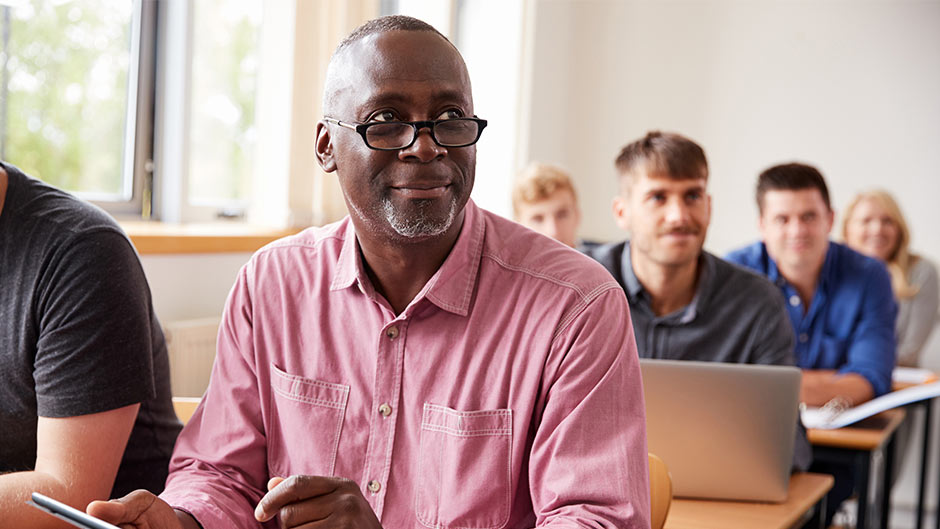
Community Services Education
Enjoy lifelong learning with fee-based classes, designed for educational goals that do not require college credit.
Community Services Education
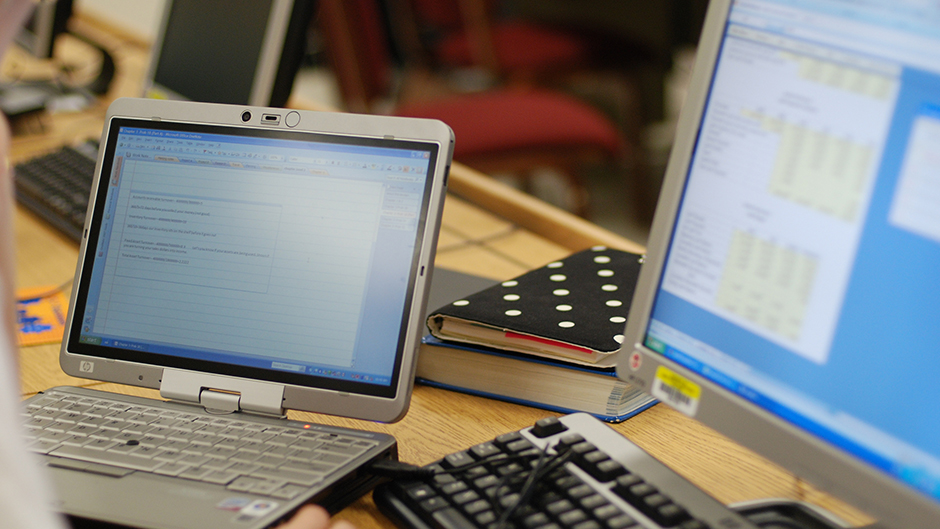
Computer Information Science
Take courses from multiple categories including computer applications, networking, programming, computer security, and web.
Computer Information Science

Deaf Culture and American Sign Language Studies
Take classes with a deaf-centered framework that embrace an empowered collaboration with people with deafness.
Deaf Culture and American Sign Language Studies

Design & Engineering Technology
Using real-world applications, get the knowledge and skills for architectural, civil, and mechanical engineering careers.
Design & Engineering Technology

Diesel/Clean Diesel Technology
Diesel/Clean Diesel Technology combines classroom and hands-on shop experiences for careers in the transportation industry.
Diesel/Clean Diesel Technology

Early Childhood Education
The earliest years of life are critical to building a foundation for lifelong learning. Young children need settings in which they can...
Early Childhood Education

Education/Teaching
Want to be a teacher? Get your two-year AA/AA-T degree. Includes two field experience courses working with credentialed teachers.
Education/Teaching

Electrician Trainee Program
The electrician trainee program provides instruction in the installation, operation, and maintenance of residential and commercial...
Electrician Trainee Program

Electronics Technology
Electronic and telecommunications training with specialties including robotics, fiber optics, and programmable controllers.
Electronics Technology
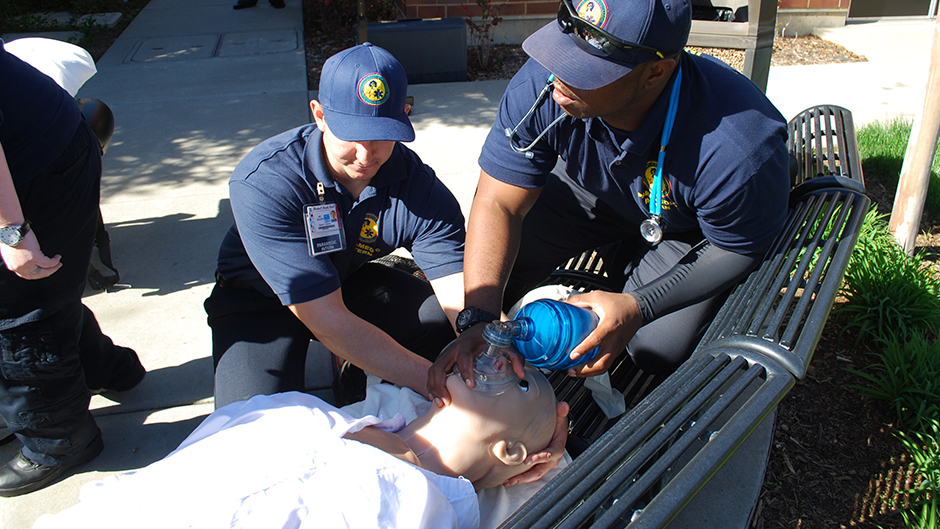
Emergency Medical Technology
Emergency Medical Technology is an allied health specialty whose practitioners respond to emergencies and render basic and advanced medical...
Emergency Medical Technology

Engineering
Get the foundation in math, physics, and engineering to transfer to a four-year institution and complete a BA in engineering.
Engineering
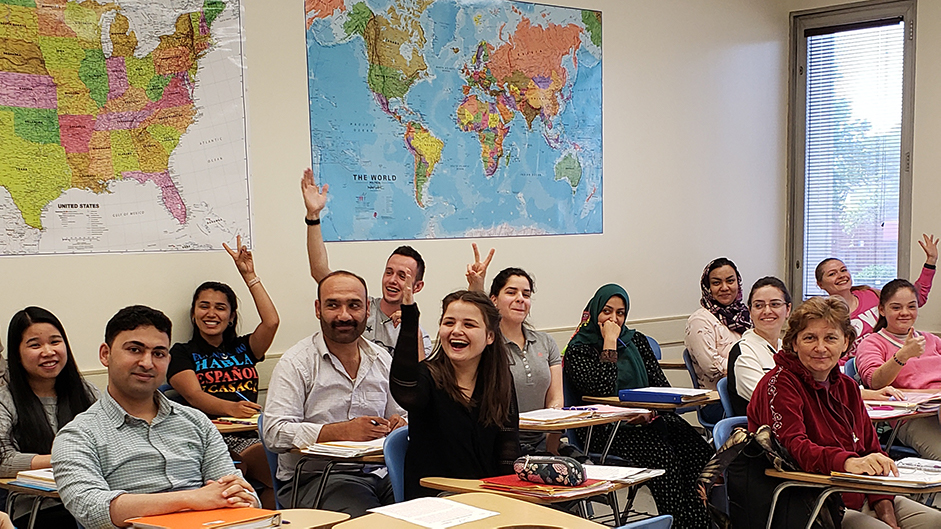
English as a Second Language
English as a Second Language (ESL) helps non-native speakers learn English to pursue their career and educational goals.
English as a Second Language
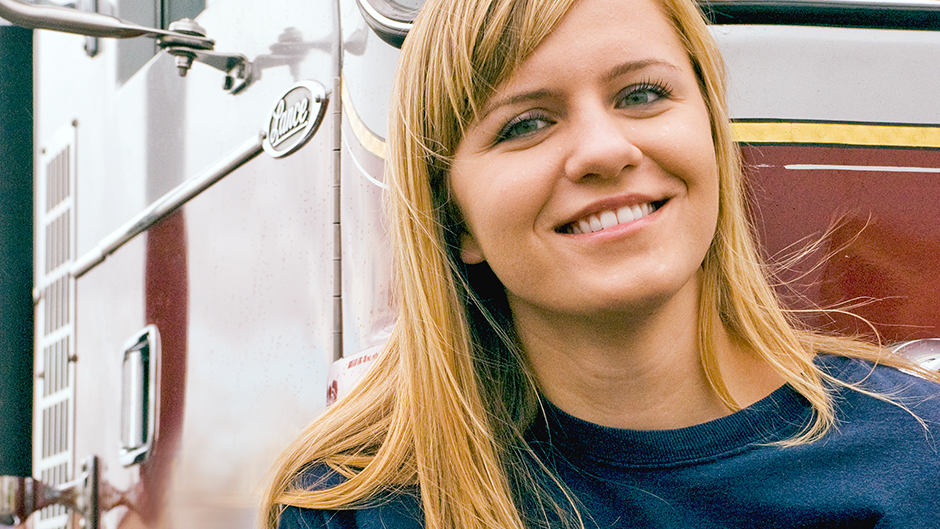
Fire Technology
Take intensive training courses for a certificate or an associate degree. Instructors are experienced members of the fire service.
Fire Technology

World Languages
Take courses in World Languages and develop a command of many languages necessary to pursue career, transfer, and degree goals.
World Languages
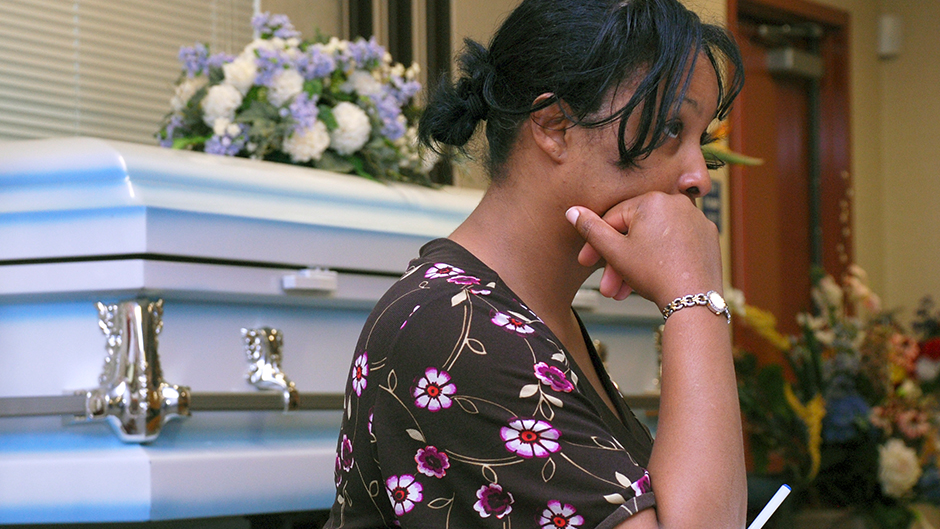
Funeral Service Education
Gain employment as funeral directors and embalmers. Courses include biology, funeral service management, and embalming.
Funeral Service Education
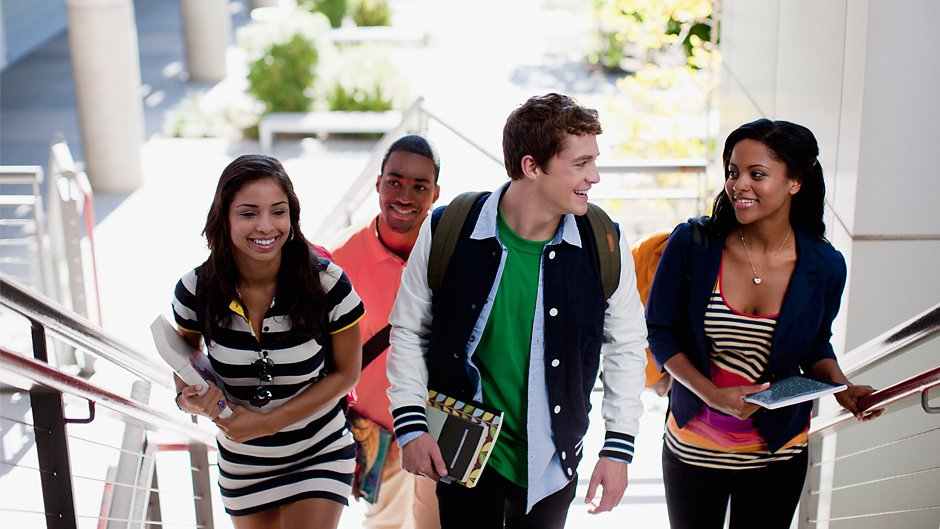
General Education - Transfer
American River College offers certificates of achievement to satisfy the general education requirements for the California State University...
General Education - Transfer

General Science
A broad study in biological and physical sciences for transfer and continuing studies in upper division science courses.
General Science

Geography and GIS
Geography is the science of space and place on Earth's surface. GIS is a computer-based technology used to map, manage, analyze, and model...
Geography and GIS

Gerontology
Start a career in aging with a nationally accredited Gerontology program at American River College. Pursue a degree or a program of merit...
Gerontology

Health Education
Obtain the essential information for the evaluation and maintenance of individual health.
Health Education

Healthcare Interpreting
Bilingual students can prepare for effective language interpretation and cultural brokering in the healthcare setting.
Healthcare Interpreting

Homeland Security
Examine terrorism, weapons of mass destruction, intelligence analysis, natural disasters, negotiations, and conflict resolution.
Homeland Security
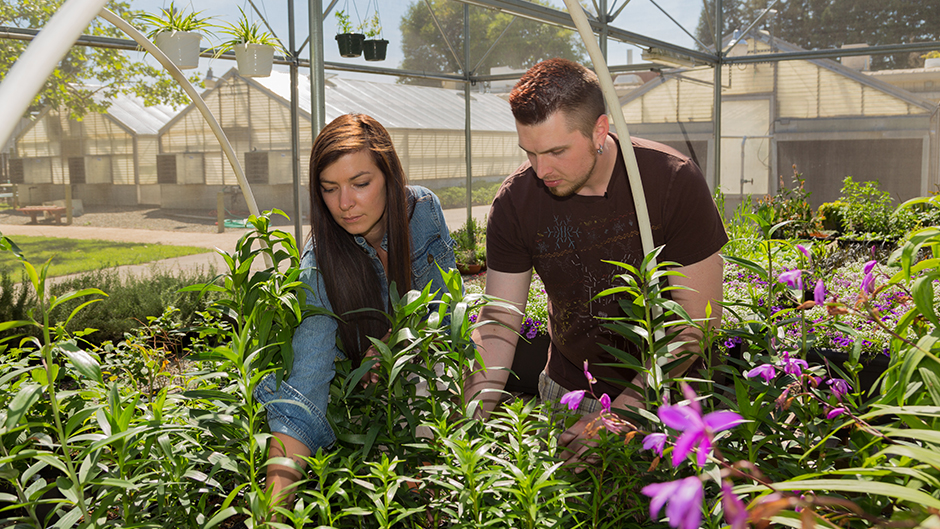
Horticulture
Horticulture improves plant culture methods, environmental sustainability, economic vitality, and quality of life.
Horticulture

Hospitality Management
From business theory to hands-on cooking, our classes focus on job skills and professional fine dining. And, work in our 4-star restaurant.
Hospitality Management

Human Career Development
Classes include study skills, career exploration, transferring, life skills, peer mentoring, and learning strategies.
Human Career Development

Human Services
Become a paraprofessional aide with agencies such as correctional institutions, welfare, mental health, schools, and childcare centers.
Human Services
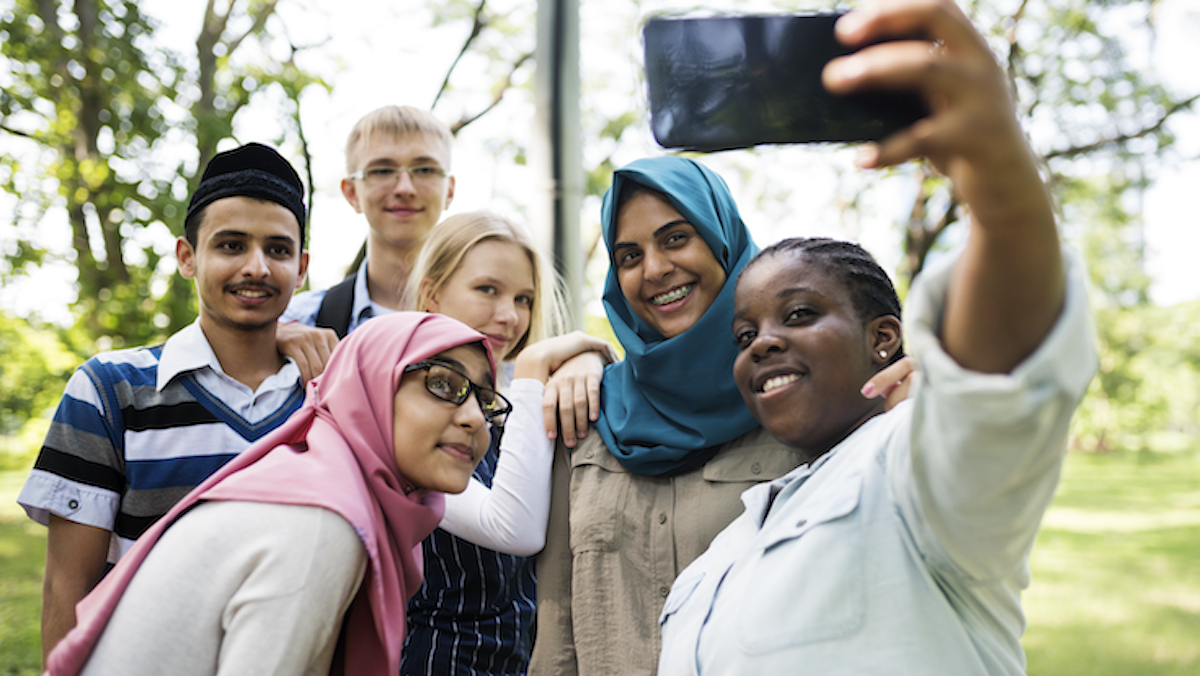
Humanities and Religious Studies
Explore the dynamics of difference through interdisciplinary study, appreciation, and analysis of world cultures from ancient times to the...
Humanities and Religious Studies
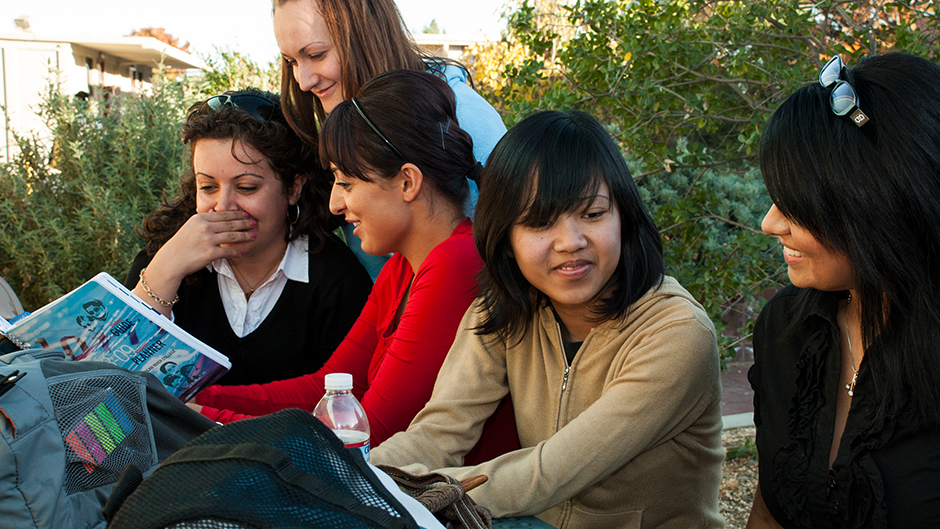
Interdisciplinary Studies
Study literature and verbal and written communication skills. Gain a background in communication skills used in the workplace
Interdisciplinary Studies

Interior Design
Do you love wandering the aisles of home decor stores or spending hours creating the perfect dream home inspiration board? Our Interior...
Interior Design

International Studies
Understand international issues including the impact of globalization, trade, economics, war, foreign relations, and diplomacy.
International Studies
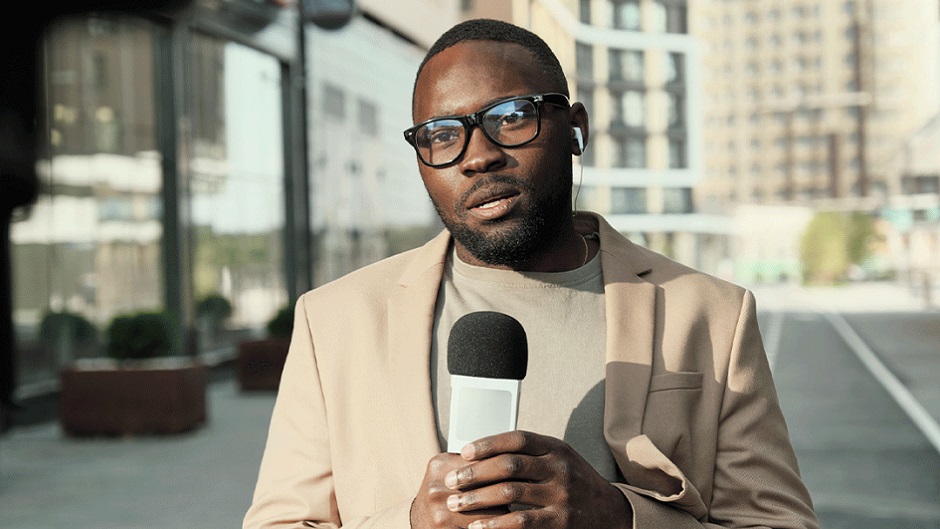
Journalism
Receive a strong introduction to both general studies and a journalism or mass communication major.
Journalism
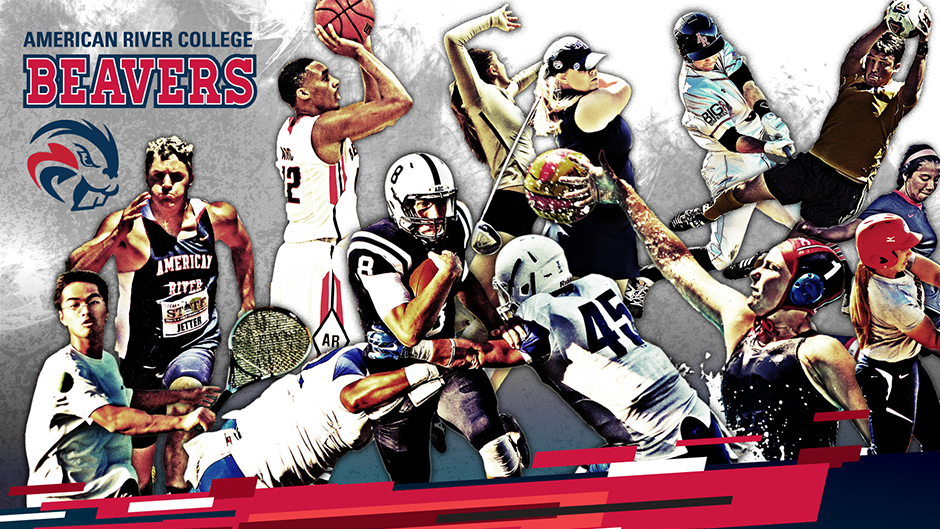
Kinesiology and Athletics
Take a wide variety of courses that improve physical fitness, sports skills, and dance performance abilities.
Kinesiology and Athletics
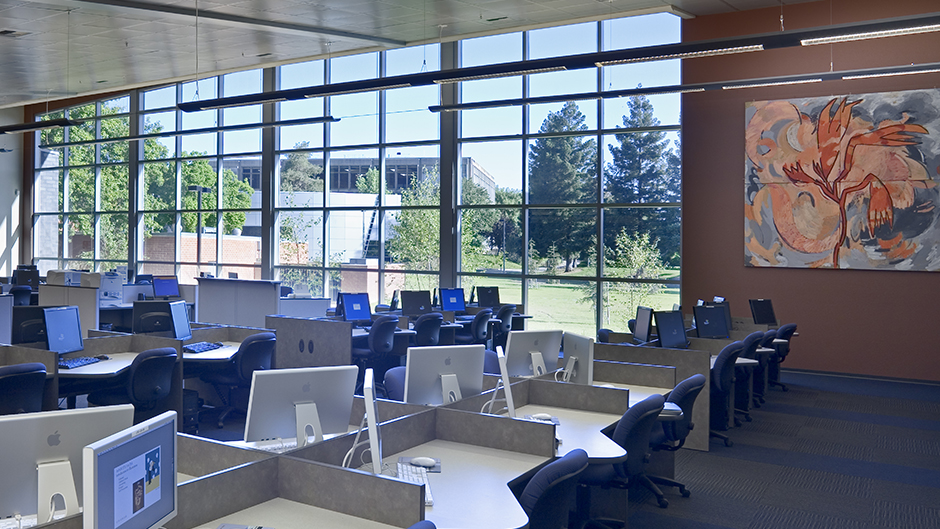
Learning Resource Center
The LRC is an instructional facility that provides classrooms, a quiet learning environment, and instructional support services.
Learning Resource Center

Legal Studies
We are approved by the American Bar Association and have been preparing students for entry-level jobs in law for over 30 years.
Legal Studies

Management
From communication to human resources, our strong management focus provides the knowledge and skills you need to achieve a management...
Management

Mathematics and Statistics
Take math classes for your graduation requirements, or earn an AS in math to transfer to a four-year program in math or statistics.
Mathematics and Statistics

Natural Resources
Understand ecological systems and their interrelationships. Receive unique opportunities for hands-on, real-world field experience.
Natural Resources

Nursing and Allied Health
Take general education and nursing courses with related lab experience in local health agencies. Work to become a registered nurse.
Nursing and Allied Health

Nutrition and Foods
Apply nutrition principles to improve health and quality of life. Prepare for transfer programs such as dietetics and health sciences.
Nutrition and Foods

Philosophy
Philosophy is the critical, rational examination of fundamental questions that people have pondered for more than 2,500 years.
Philosophy

Political Science
Take courses including U.S. government, foreign government, Constitutional rights, international relations, and law and society.
Political Science

Psychology
Courses include psychology of death and dying, abnormal behavior, human development, human sexuality, and psychology of aging.
Psychology

Real Estate
Learn practical applications in real estate, including legal aspects, practice, finance, economics, and appraisal.
Real Estate

Recreation
ARC's recreation program offers an associate degree that provides training for an entry-level career in the field of recreation and leisure...
Recreation
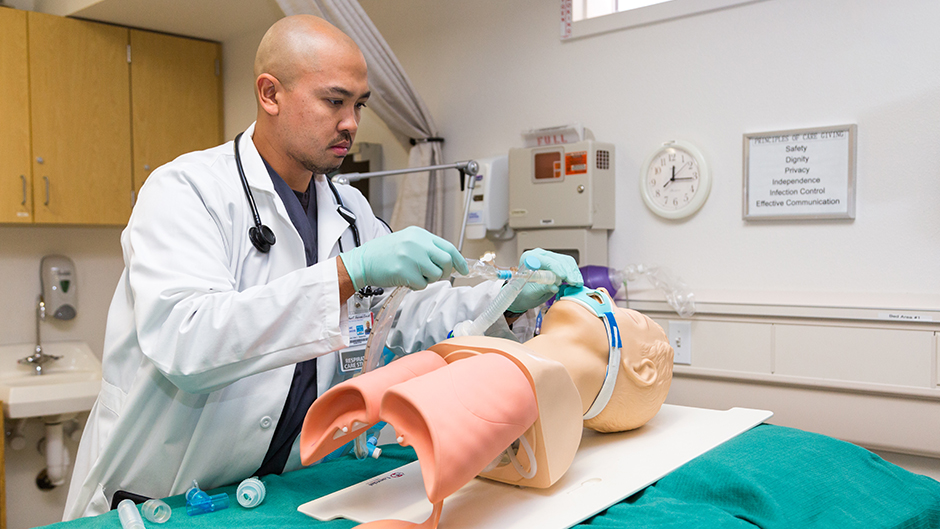
Respiratory Care
Become a CA licensed registered respiratory therapist and learn diagnostic procedures, treatment, and patient management.
Respiratory Care

Sacramento Regional Public Safety Training
Receive high-quality, entry-level and advanced in-service training and educational programs for public safety personnel.
Sacramento Regional Public Safety Training

Social Justice Studies
The Associate in Arts in Social Justice Studies: Race and Ethnicity for Transfer degree provides students with a major that fulfills the...
Social Justice Studies

Social Science
Study scientific disciplines to see how events are shaped by socio-economic, political, ecological, and geographical forces.
Social Science
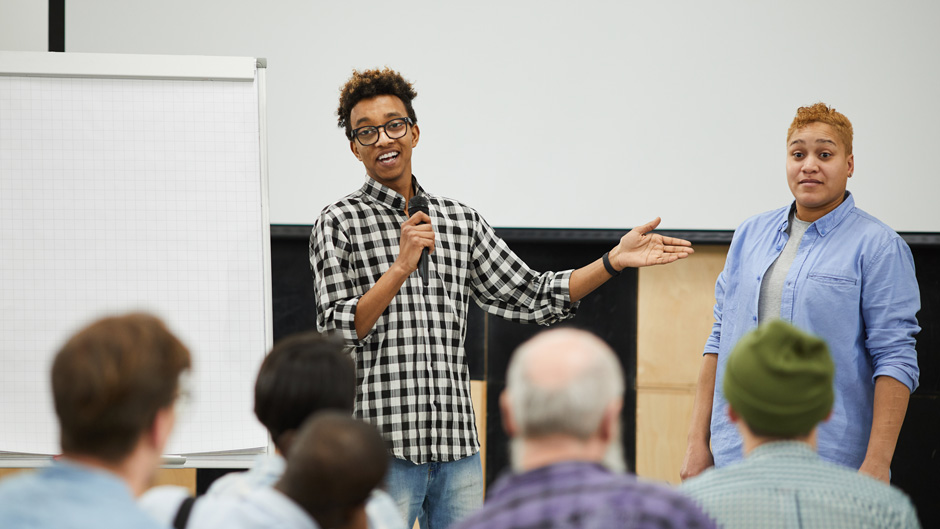
Communication
Communication is essential for personal and professional growth. Learn theory and practice public speaking and critical thinking.
Communication
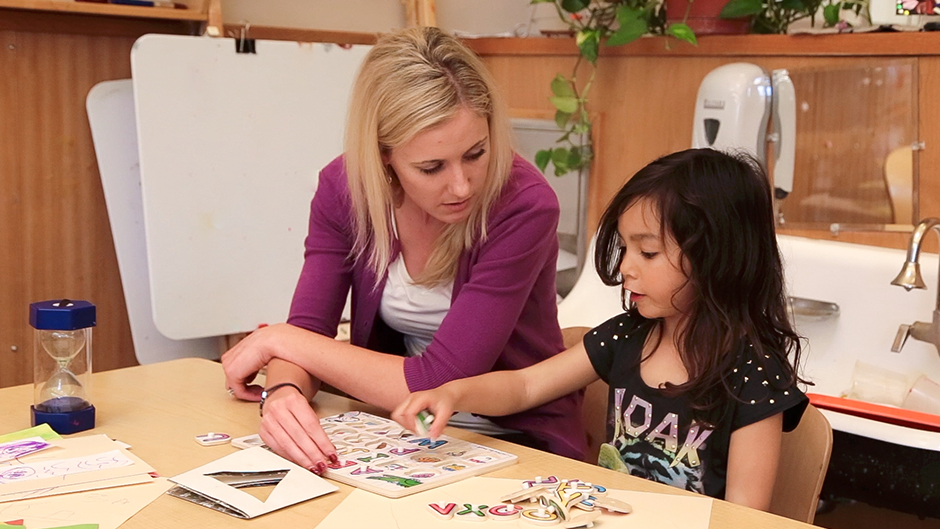
Speech-Language Pathology
Learn to assist speech-language pathologists in treating communication disorders including articulation, voice, fluency, and hearing.
Speech-Language Pathology

Student Government
Participate in faculty and administrative committees. Learn leadership skills and gain practical experience in student government.
Student Government

Technical Communication
Technical Communication an interdisciplinary course of study designed to prepare students for employment as professional writers and...
Technical Communication
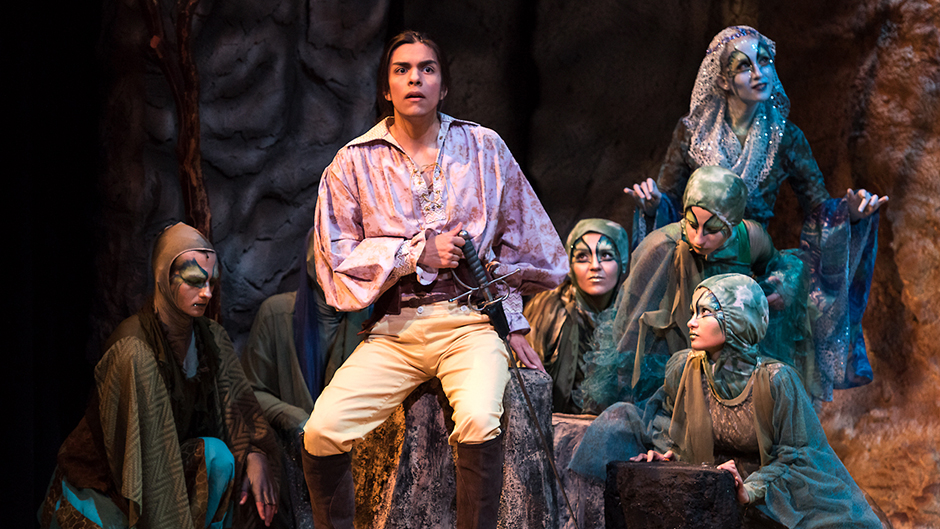
Theatre Arts
Take classes in all areas of theatre and an expanding Film Studies Program. Enjoy a busy production schedule and our new facility.
Theatre Arts

Theatre Arts Film
ARC's Theatre Arts Film offerings include a variety of classes as well as degree and certificate programs.
Theatre Arts Film
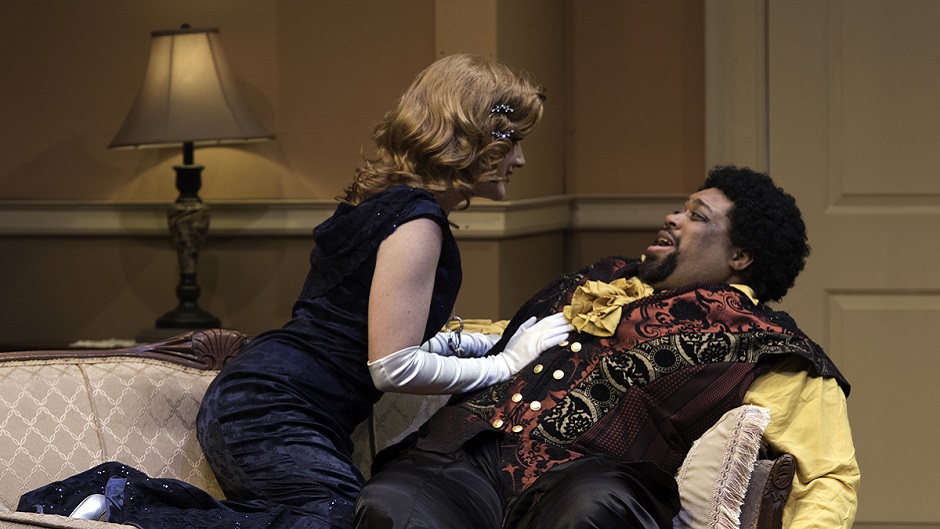
Theatre Arts Performance
ARC's Theatre Arts Performance classes give you real-world experience acting on stage or working behind the scenes.
Theatre Arts Performance
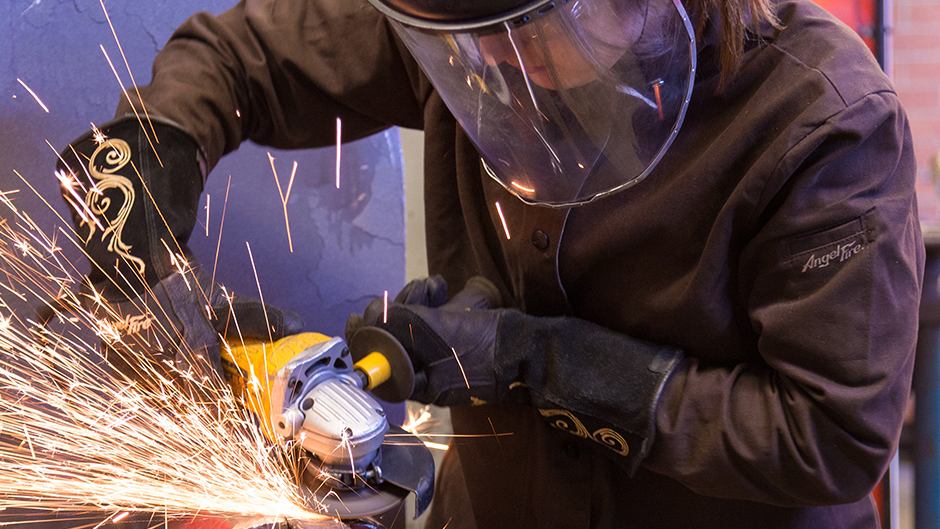
Welding Technology
Gain skills and knowledge in manual and semi-automatic welding processes used in the metal fabrication and construction industries.
Welding Technology

Work Experience
Our experiential academic program is where students apply what they have learned in the classroom to a work environment.
Work Experience

Accounting
Prepare for careers in various accounting professions and develop a foundation in accounting and business.
Accounting

Administration of Justice
Learn the prevention, discovery, control, and treatment of crimes, and prepare for the administration of justice field.
Administration of Justice

Anthropology
Study humankind around the world and throughout time to understand our evolutionary origins and our diverse cultures.
Anthropology

Apprenticeship
Gain occupational training that combines paid employment, on-the-job training, and job-related college instruction.
Apprenticeship

Art History
Our Art History degree is designed to give students the foundation in art history necessary for transfer to a four-year college or...
Art History

Art New Media
A digital art and design education honoring traditional art foundations. Learn the latest tools and techniques in multiple areas.
Art New Media

ASL-English Interpreting
Prepare for entry-level positions with integrated coursework in American Sign Language (ASL) and ASL-English interpretation.
ASL-English Interpreting

Automotive Collision Technology
The Automotive Tech Programs combine classroom and hands-on shop experience to prepare for careers in the transportation industry.
Automotive Collision Technology

Automotive Technology
Receive combined classroom and hands-on shop experiences to prepare for automotive service careers and repair all types of cars.
Automotive Technology

Biology and Biotechnology
Understand the living world. Meet the challenges of the future, improve the quality of human life, and preserve biodiversity.
Biology and Biotechnology

Business Technology
Prepare for first-time employment, re-entry, or career advancement in a variety of administrative and office settings.
Business Technology

Community Services Education
Enjoy lifelong learning with fee-based classes, designed for educational goals that do not require college credit.
Community Services Education

Computer Information Science
Take courses from multiple categories including computer applications, networking, programming, computer security, and web.
Computer Information Science

Deaf Culture and American Sign Language Studies
Take classes with a deaf-centered framework that embrace an empowered collaboration with people with deafness.
Deaf Culture and American Sign Language Studies

Design & Engineering Technology
Using real-world applications, get the knowledge and skills for architectural, civil, and mechanical engineering careers.
Design & Engineering Technology

Diesel/Clean Diesel Technology
Diesel/Clean Diesel Technology combines classroom and hands-on shop experiences for careers in the transportation industry.
Diesel/Clean Diesel Technology

Early Childhood Education
The earliest years of life are critical to building a foundation for lifelong learning. Young children need settings in which they can...
Early Childhood Education

Education/Teaching
Want to be a teacher? Get your two-year AA/AA-T degree. Includes two field experience courses working with credentialed teachers.
Education/Teaching

Electrician Trainee Program
The electrician trainee program provides instruction in the installation, operation, and maintenance of residential and commercial...
Electrician Trainee Program

Electronics Technology
Electronic and telecommunications training with specialties including robotics, fiber optics, and programmable controllers.
Electronics Technology

Emergency Medical Technology
Emergency Medical Technology is an allied health specialty whose practitioners respond to emergencies and render basic and advanced medical...
Emergency Medical Technology

Engineering
Get the foundation in math, physics, and engineering to transfer to a four-year institution and complete a BA in engineering.
Engineering

English as a Second Language
English as a Second Language (ESL) helps non-native speakers learn English to pursue their career and educational goals.
English as a Second Language

Fire Technology
Take intensive training courses for a certificate or an associate degree. Instructors are experienced members of the fire service.
Fire Technology

World Languages
Take courses in World Languages and develop a command of many languages necessary to pursue career, transfer, and degree goals.
World Languages

Funeral Service Education
Gain employment as funeral directors and embalmers. Courses include biology, funeral service management, and embalming.
Funeral Service Education

General Education - Transfer
American River College offers certificates of achievement to satisfy the general education requirements for the California State University...
General Education - Transfer

General Science
A broad study in biological and physical sciences for transfer and continuing studies in upper division science courses.
General Science

Geography and GIS
Geography is the science of space and place on Earth's surface. GIS is a computer-based technology used to map, manage, analyze, and model...
Geography and GIS

Gerontology
Start a career in aging with a nationally accredited Gerontology program at American River College. Pursue a degree or a program of merit...
Gerontology

Health Education
Obtain the essential information for the evaluation and maintenance of individual health.
Health Education

Healthcare Interpreting
Bilingual students can prepare for effective language interpretation and cultural brokering in the healthcare setting.
Healthcare Interpreting

Homeland Security
Examine terrorism, weapons of mass destruction, intelligence analysis, natural disasters, negotiations, and conflict resolution.
Homeland Security

Horticulture
Horticulture improves plant culture methods, environmental sustainability, economic vitality, and quality of life.
Horticulture

Hospitality Management
From business theory to hands-on cooking, our classes focus on job skills and professional fine dining. And, work in our 4-star restaurant.
Hospitality Management

Human Career Development
Classes include study skills, career exploration, transferring, life skills, peer mentoring, and learning strategies.
Human Career Development

Human Services
Become a paraprofessional aide with agencies such as correctional institutions, welfare, mental health, schools, and childcare centers.
Human Services

Humanities and Religious Studies
Explore the dynamics of difference through interdisciplinary study, appreciation, and analysis of world cultures from ancient times to the...
Humanities and Religious Studies

Interdisciplinary Studies
Study literature and verbal and written communication skills. Gain a background in communication skills used in the workplace
Interdisciplinary Studies

Interior Design
Do you love wandering the aisles of home decor stores or spending hours creating the perfect dream home inspiration board? Our Interior...
Interior Design

International Studies
Understand international issues including the impact of globalization, trade, economics, war, foreign relations, and diplomacy.
International Studies

Journalism
Receive a strong introduction to both general studies and a journalism or mass communication major.
Journalism

Kinesiology and Athletics
Take a wide variety of courses that improve physical fitness, sports skills, and dance performance abilities.
Kinesiology and Athletics

Learning Resource Center
The LRC is an instructional facility that provides classrooms, a quiet learning environment, and instructional support services.
Learning Resource Center

Legal Studies
We are approved by the American Bar Association and have been preparing students for entry-level jobs in law for over 30 years.
Legal Studies

Management
From communication to human resources, our strong management focus provides the knowledge and skills you need to achieve a management...
Management

Mathematics and Statistics
Take math classes for your graduation requirements, or earn an AS in math to transfer to a four-year program in math or statistics.
Mathematics and Statistics

Natural Resources
Understand ecological systems and their interrelationships. Receive unique opportunities for hands-on, real-world field experience.
Natural Resources

Nursing and Allied Health
Take general education and nursing courses with related lab experience in local health agencies. Work to become a registered nurse.
Nursing and Allied Health

Nutrition and Foods
Apply nutrition principles to improve health and quality of life. Prepare for transfer programs such as dietetics and health sciences.
Nutrition and Foods

Philosophy
Philosophy is the critical, rational examination of fundamental questions that people have pondered for more than 2,500 years.
Philosophy

Political Science
Take courses including U.S. government, foreign government, Constitutional rights, international relations, and law and society.
Political Science

Psychology
Courses include psychology of death and dying, abnormal behavior, human development, human sexuality, and psychology of aging.
Psychology

Real Estate
Learn practical applications in real estate, including legal aspects, practice, finance, economics, and appraisal.
Real Estate

Recreation
ARC's recreation program offers an associate degree that provides training for an entry-level career in the field of recreation and leisure...
Recreation

Respiratory Care
Become a CA licensed registered respiratory therapist and learn diagnostic procedures, treatment, and patient management.
Respiratory Care

Sacramento Regional Public Safety Training
Receive high-quality, entry-level and advanced in-service training and educational programs for public safety personnel.
Sacramento Regional Public Safety Training

Social Justice Studies
The Associate in Arts in Social Justice Studies: Race and Ethnicity for Transfer degree provides students with a major that fulfills the...
Social Justice Studies

Social Science
Study scientific disciplines to see how events are shaped by socio-economic, political, ecological, and geographical forces.
Social Science

Communication
Communication is essential for personal and professional growth. Learn theory and practice public speaking and critical thinking.
Communication

Speech-Language Pathology
Learn to assist speech-language pathologists in treating communication disorders including articulation, voice, fluency, and hearing.
Speech-Language Pathology

Student Government
Participate in faculty and administrative committees. Learn leadership skills and gain practical experience in student government.
Student Government

Technical Communication
Technical Communication an interdisciplinary course of study designed to prepare students for employment as professional writers and...
Technical Communication

Theatre Arts
Take classes in all areas of theatre and an expanding Film Studies Program. Enjoy a busy production schedule and our new facility.
Theatre Arts

Theatre Arts Film
ARC's Theatre Arts Film offerings include a variety of classes as well as degree and certificate programs.
Theatre Arts Film

Theatre Arts Performance
ARC's Theatre Arts Performance classes give you real-world experience acting on stage or working behind the scenes.
Theatre Arts Performance

Welding Technology
Gain skills and knowledge in manual and semi-automatic welding processes used in the metal fabrication and construction industries.
Welding Technology

Work Experience
Our experiential academic program is where students apply what they have learned in the classroom to a work environment.
Work ExperienceNews

April 8, 2024
February 23, 2024
January 22, 2024
October 12, 2023
June 15, 2023
Events
Undocu-Knowledge Workshop Series: Mental Health for Undocumented Students
from 1:00 to 2:00 pm
Indigenous Land Use Statement
We acknowledge the land which we occupy at American River College as the traditional home of the Nisenan, Maidu, and Miwok tribal nations. These sovereign people have been the caretakers of this land since time immemorial. Despite centuries of genocide and occupation the Nisenan, Maidu, and Miwok continue as vibrant and resilient tribes and bands, both Federally recognized and unrecognized. We take this opportunity to acknowledge the generations that have gone before as well as the present-day Nisenan, Maidu, and Miwok people.





